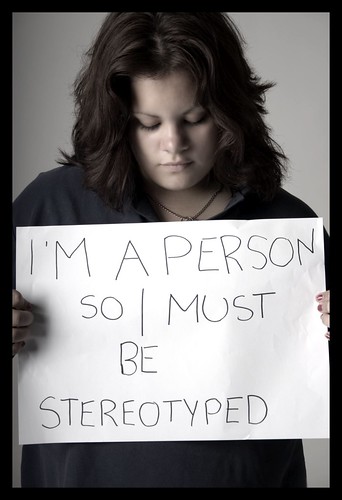
We as consumers are influenced on many different cultural, personal, and material levels. Religious claims may entice some people, while what is in fashion may draw the attention of others. Und
 er almost all circumstances, propaganda and the manipulation of public opinion is used to win an audience and a group of consumers.
er almost all circumstances, propaganda and the manipulation of public opinion is used to win an audience and a group of consumers.If companies are creating advertisements that glorify their products, or certain brands of clothing are accepted as the better kind because fashionably influential celebrities or notable figures are sought out for support of the product, does that make it immoral? Not really. We as consumers are the ones who buy into it; at least the majority of us does. Human beings are still free to choose; a power that people might use poorly, but its none-the-less still a choice or a preference that we make (or maybe it is the advertisers?). Either way, there’s no gun held to our heads to purchase products; just lots of pretty colors, celebrities, slogans, guaranties…you get where I’m going.
Can we blame companies for competing the way they do? It’s completely necessary in today’s market because it’s hard to draw attention to a new product. It’s the survival of the fittest, and marketers can tweak their genetics to gain an interest. The motives behind it are simple; they’re “basic instincts of self preservation” as states by Bernays. It’s someone’s job to influence you enough to purchase their product.

If someone needs the approval by society to purchase something, then maybe they deserve to be sucked into the game. American woman would not purchase American silk because they preferred the more “luxurious” French style. In order to market their silk, the American ambassador had to exhibit American silk at the louver, in order for it to gain recognition (Bernays, 56). What do you know, it worked! America woman began to eat that stuff up!
Speaking of eating though, I thought of an analogy, provoked by an observation that Walter Lippmann made. He brought up voting in his essay “The Disenchanted Man” and made an observation that democracy doesn’t exactly always work. The majority isn’t always right, and doesn’t even always know its own best interests (38-39). I brought up eating because I though of an analogy that represents this. If a kindergarten teacher offered two choices for snack; Oreo cookies, or an apple, the majority would like be overwhelmingly in favor of eating Oreos. Maybe it won’t hurt the kids to eat cookies every day, but in the long-run it’s better for the children to eat apples. What if a vote was taken in Georgia to abolish slavery in the state prior to the civil war? Again, it is likely that most people would have voted against this given that the slaves were not permitted to vote themselves.
We live in a much different time now when everyone voices can be heard, at least to some extents. We can all choose what we buy, and we can choose to be influenced by the media surrounding us, or we can choose to be rational and ask ourselves, “Do I really need this?”





















